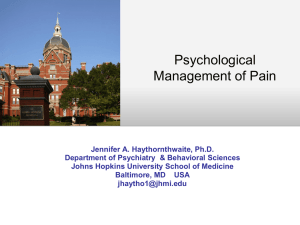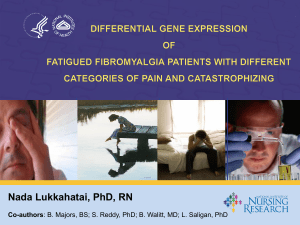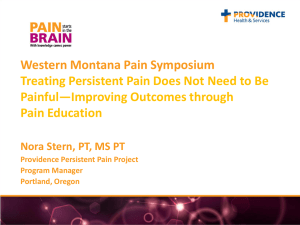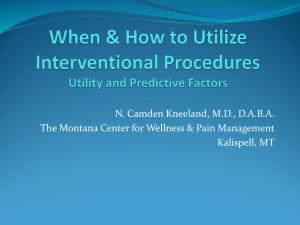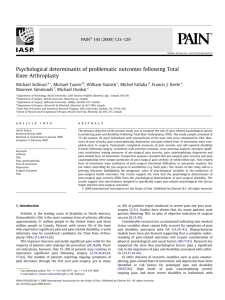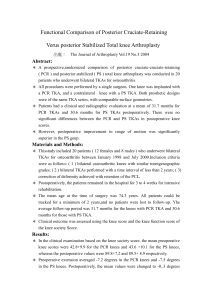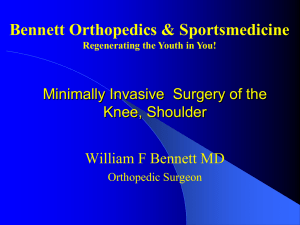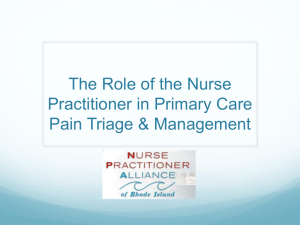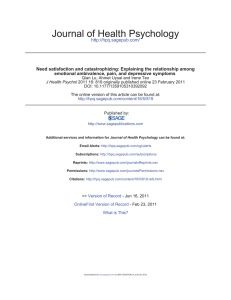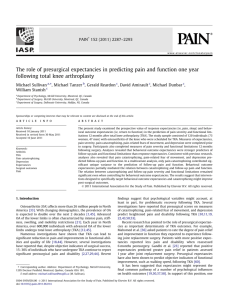View/Open
advertisement
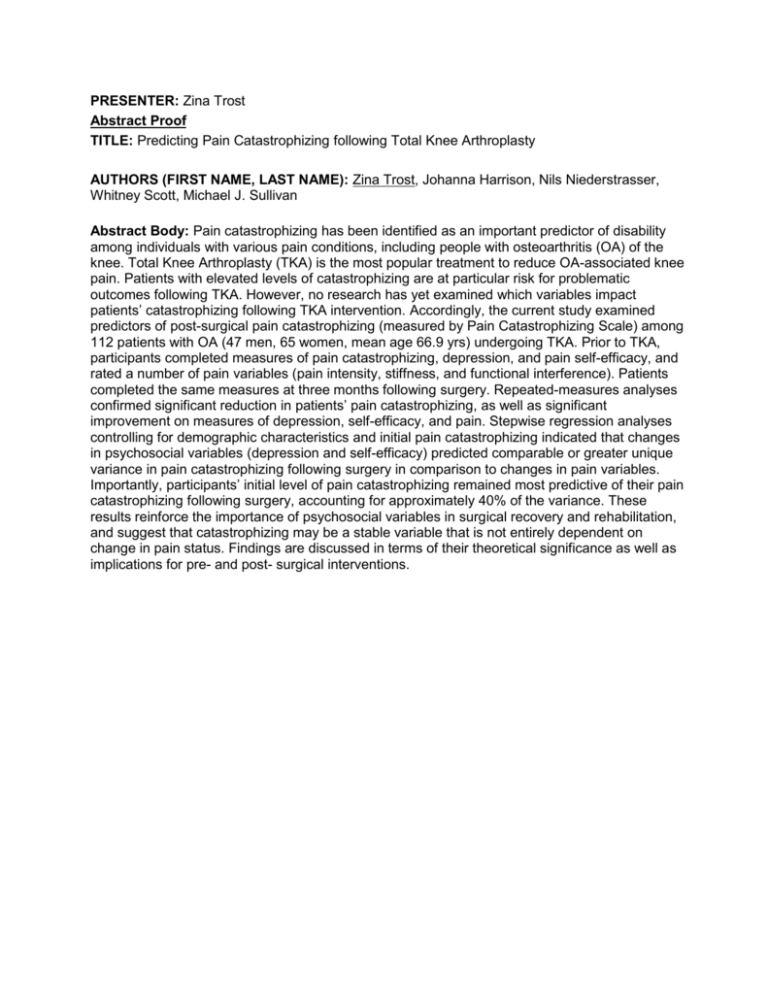
PRESENTER: Zina Trost Abstract Proof TITLE: Predicting Pain Catastrophizing following Total Knee Arthroplasty AUTHORS (FIRST NAME, LAST NAME): Zina Trost, Johanna Harrison, Nils Niederstrasser, Whitney Scott, Michael J. Sullivan Abstract Body: Pain catastrophizing has been identified as an important predictor of disability among individuals with various pain conditions, including people with osteoarthritis (OA) of the knee. Total Knee Arthroplasty (TKA) is the most popular treatment to reduce OA-associated knee pain. Patients with elevated levels of catastrophizing are at particular risk for problematic outcomes following TKA. However, no research has yet examined which variables impact patients’ catastrophizing following TKA intervention. Accordingly, the current study examined predictors of post-surgical pain catastrophizing (measured by Pain Catastrophizing Scale) among 112 patients with OA (47 men, 65 women, mean age 66.9 yrs) undergoing TKA. Prior to TKA, participants completed measures of pain catastrophizing, depression, and pain self-efficacy, and rated a number of pain variables (pain intensity, stiffness, and functional interference). Patients completed the same measures at three months following surgery. Repeated-measures analyses confirmed significant reduction in patients’ pain catastrophizing, as well as significant improvement on measures of depression, self-efficacy, and pain. Stepwise regression analyses controlling for demographic characteristics and initial pain catastrophizing indicated that changes in psychosocial variables (depression and self-efficacy) predicted comparable or greater unique variance in pain catastrophizing following surgery in comparison to changes in pain variables. Importantly, participants’ initial level of pain catastrophizing remained most predictive of their pain catastrophizing following surgery, accounting for approximately 40% of the variance. These results reinforce the importance of psychosocial variables in surgical recovery and rehabilitation, and suggest that catastrophizing may be a stable variable that is not entirely dependent on change in pain status. Findings are discussed in terms of their theoretical significance as well as implications for pre- and post- surgical interventions.

